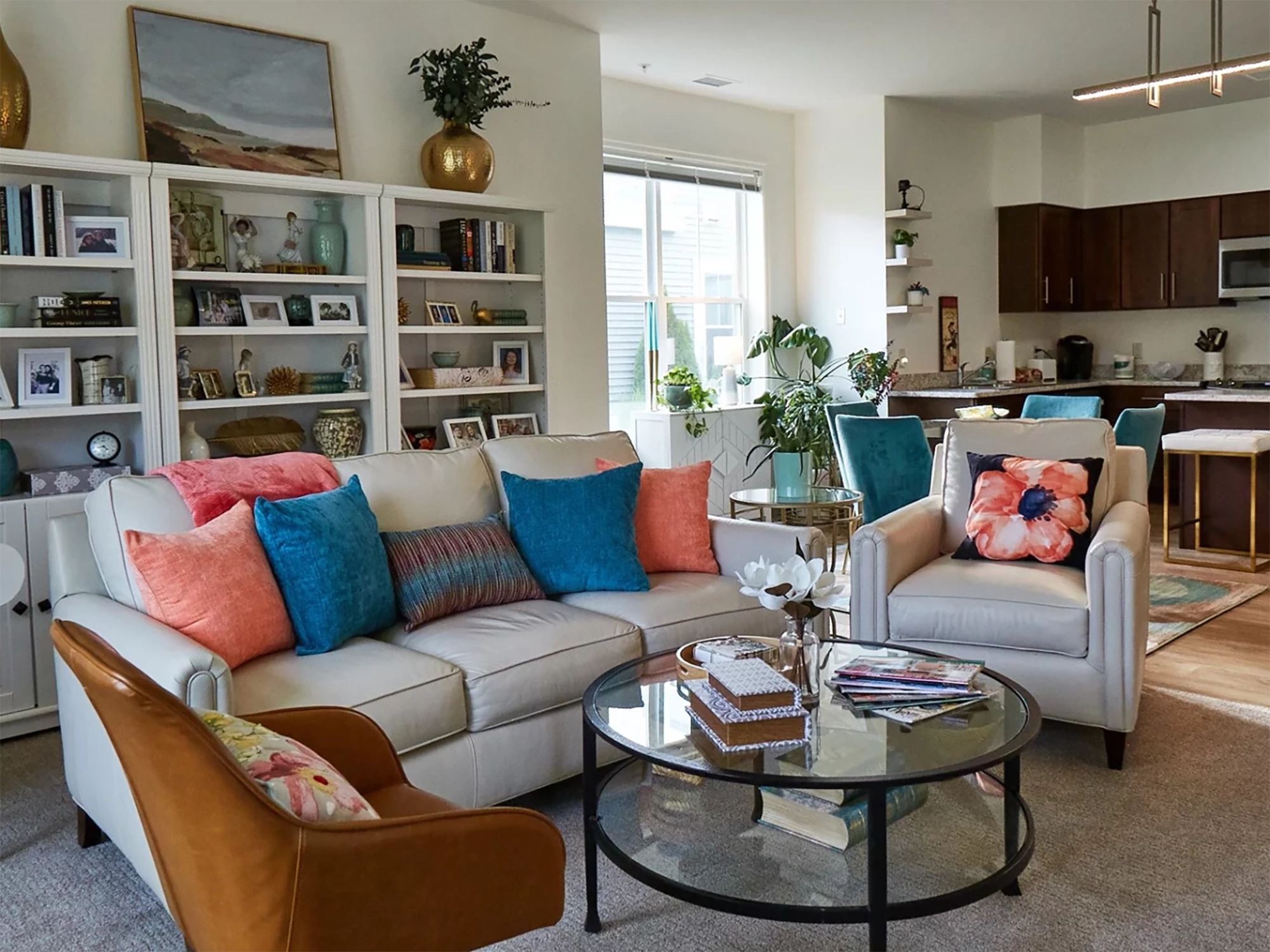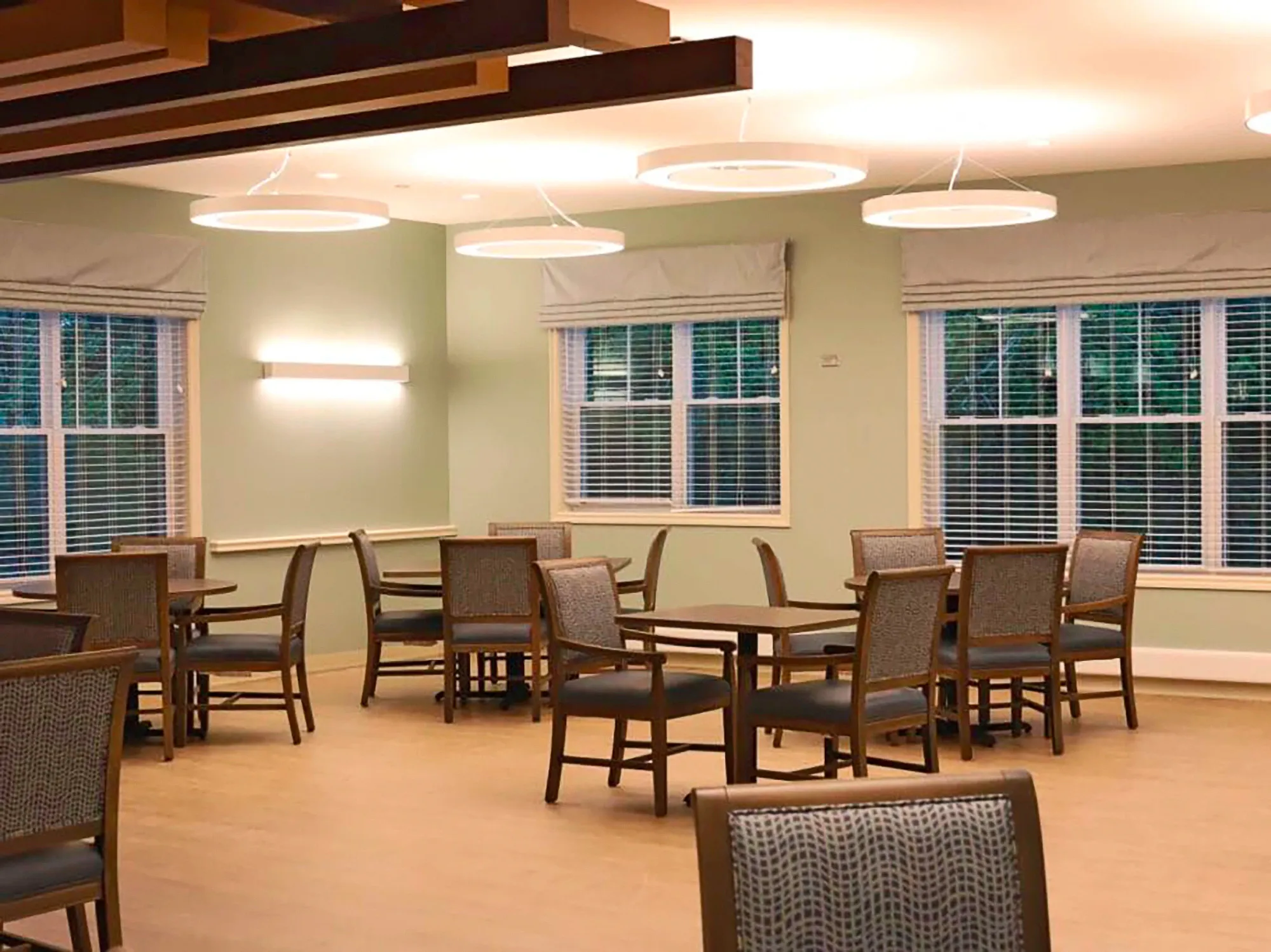As the coronavirus pandemic continued to evolve, it became clear SALMON Health and Retirement’s typical functions would have to change in order to keep the core of the organization safe: their Residents and Clients.
CEO of family-owned and operated SALMON Health and Retirement, Matt Salmon, first described the unfolding COVID-19 events “not unlike war” and realized that in such unprecedented times, extraordinary measures would have to take place. The organization quickly put in place uncommon measures, before they were state mandated, to protect Residents and Clients. Outside visitations were prohibited, screenings of staff members went underway, and a plan to place Residents in touch with their family members and friends via technology-based communication was developed.
However, when Governor Charlie Baker—in conjunction with the state Office of Health and Human Services, Massachusetts Department of Public Health (DPH) and UMass Memorial Medical Center—called on SALMON Health and Retirement’s Beaumont at Worcester community to become the nation’s first COVID-19 treatment and recovery center for seniors, it was unexpected and unprecedented.
The request was met with a mixture of surprise and pride for their confidence in the organization’s capabilities and worry when deciding what to do with the valued Residents already in SALMON’s care. In order to make his decision, Matt thought back to his grandparents and their vision when they first opened their doors in 1952. He recalled that they “wanted to care for the frailest members of the community and treat them like family.” Matt knew their vision had to continue to be honored.
On March 28, the organization started moving Residents out of Beaumont at Worcester to sister campuses and nearby communities. This decision was two-fold: by moving Residents out, those individuals would be protected from the potential of COVID-19 admissions while SALMON’s other communities would be insulated from the possibility of having to accept COVID-19 patients in the future because they would be at capacity.
Executive Director of Beaumont at Worcester, Shawn Neville, reported the beginning of the transition had its challenges. While there were staff members who initially left, some to help at sister campuses, many returned “once the fear subsided” and according to Neville, as a “sense of dedication to the campus.” Neville explained many of the staff were able to take on the changes with ease as experienced members of a skilled nursing center.
In preparation for the intake of recovering COVID-19 patients, UMass Memorial Medical Center provided training and support to the staff of Beaumont at Worcester. Neville said the organization has been “excellent, far above and beyond from the very start.” He mentioned Gina Smith, director of emergency management and preparedness at UMass Memorial Medical Center, has led all the trainings on infection control and specifics on personal protective equipment (PPE) which helped put the staff at ease.
President and CEO of UMass Medical Group, Dr. Eric Dickson, also visited staff members before the start of COVID-19 patient transfers. In a meeting with them, Dr. Dickson emphasized that by opening Beaumont to COVID-19 positive patients, “SALMON’s staff of Beaumont at Worcester are part of the team saving lives in Central Massachusetts. We are grateful for this partnership.”
Neville confirmed the support from UMass Memorial Medical Center has helped prepare staff effectively. Since April 5, there have been 70 patients admitted to Beaumont at Worcester. According to Neville, the transition and acceptance of patients has been “smooth so far.” Neville is most proud of SALMON’s staff members dedicated to the campus and dedicated to fighting COVID-19. Neville says that they have been “exceptional. Everything they’re doing, the commitment [of staff] has been so heartwarming.”
In addition to new trainings and additional medical support, one of the most impressive changes to the Beaumont at Worcester campus was the introduction of the Ava Telepresence robot. CEO of Ava Robotics Inc., Youssef Saleh, stated that he “came across a story about a nursing home that was going to move Residents out of their facility to open up room to treat COVID-19 patients.” Saleh recalled that he “wanted to reach out to facilities in the area to see how Ava could help.” He contacted SALMON Health and Retirement directly and donated one of the robots “to provide a solution for family visitation.”
The robot, affectionately named “Lindsay” by Beaumont at Worcester staff, features intelligent, autonomous navigation. Users choose a destination and the robot automatically moves to it. The robot also has built-in collision avoidance and videoconferencing capability. Lindsay’s “face” (the screen) allows doctors and families to be transported into the room with patients. SALMON’s Chief Technology Officer Eric Borgeson spearheaded the initial setup of the new technology. Borgeson reports the setup didn’t require a lot of training; he had to simply place the robot in the new building and “teach” it about its new environment. According to Neville, the robot has allowed for “better interaction, has helped preserve PPE and reduced the risk of the virus spreading.”
Borgeson explains the robot is both a “social and clinical tool.” Family members and friends can check in on their loved ones and provide the social interaction many COVID-19 patients would otherwise lack, while medical staff can safely and effectively communicate with patients about their needs. Saleh states that “knowing our product is helping people truly connect and get the treatment they need during this pandemic is special.”
Barry and Mary Giller of Milford, MA, are two patients familiar with the Ava Telepresence robot. The Gillers will be the first patients discharged from Beaumont at Worcester on April 16 after fully recovering from COVID-19.
Mary was apprehensive as they prepared for the transition from UMass Memorial Medical Center to Beaumont at Worcester because she “didn’t know what to expect.” However, they quickly realized that the staff was “so helpful and pleasant.” Mary recalled that all staff, no matter who, would complete tasks for her and Barry “even if it wasn’t their job.” Most importantly, they would do so with “a pleasant smile.” While recovering, Barry and Mary were able to communicate with their family members, who reside in different states, via phone calls and FaceTime. They also had many doctor visits and staff check-ins through Lindsay the robot’s videoconferencing capability. While using Lindsay was definitely a new experience for both Barry and Mary, they also described it as entertaining and informative.
The Gillers are feeling well and are excited to return home, mostly to sleep in their own bed.
Barry reflects “it couldn’t get any better than the staff [at Beaumont at Worcester] and across the street [at UMass Memorial Medical Center] …they all have a special place in my heart, I feel so blessed.”
SALMON Health and Retirement continues to address the needs of their Residents and Clients as they evolve during the COVID-19 pandemic. CEO Matt Salmon reports, “It may not be business as usual these days but caring for others is what we do best.”




